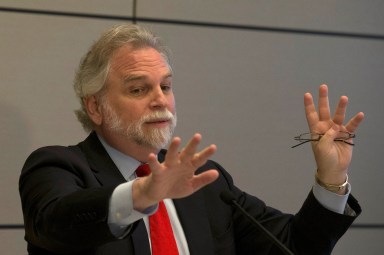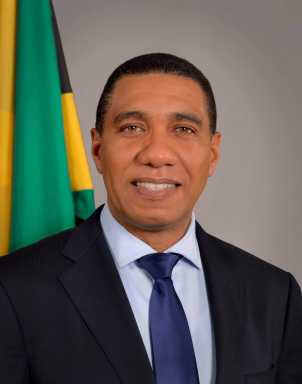Listeners:
Top listeners:
-
play_arrow
RadioJLR Just Press Play
Op-Ed | Mayor Adams’ nomination of Randy Mastro ignored advice-and-consent process

Advice-and-consent is a cornerstone of good governance, established in the foundations of our nation’s democracy.
The advice-and-consent process is not merely a formality, but an essential mechanism for collaboratively ensuring a nominee has the qualifications for the role and the confidence of stakeholders to succeed in it. It is something I taught my political science students at Queens College.
Here in New York City, the process has proceeded smoothly over the past two years between the Mayor’s Office and City Council for more than 35 of Mayor Eric Adams’ nominees, building upon decades of this intergovernmental work. In accordance with long-established routine practices, this Mayor and City Council have communicated about any potential issues before a nomination advances, either resolving them or determining that a different candidate is necessary to achieve a smooth confirmation. It is inherently a process of collaboration that promotes the public interest, and while valid concerns may emerge during a hearing on the nominee, the two sides have generally established a path forward to avoid fatal impediments to a nomination.
Yet, Mayor Adams’ nomination of Randy Mastro for Corporation Counsel, the City’s top lawyer, significantly strayed from this established process. The Mayor’s deviation from the norm for this position was especially confounding and problematic, given that this position requires a higher threshold of confidence and trust as the chosen lawyer to represent all city officials and the entire city.
Months before the mayor formally nominated Mr. Mastro, the Council had expressed serious concerns publicly about Mr. Mastro’s record, demonstrating an inability to secure the Council’s trust. Privately, it was also communicated that the votes were unlikely to exist for his confirmation within the Council and the desired outcome would be for the two sides to partner to advance a nominee with broad support.
This is exactly how the advice-and-consent process should work.
Typically, this level of concern about a nominee’s record and ability to secure the confirmation votes would prompt an administration to reconsider or withdraw the nomination. In fact, this is how the process has unfolded every other time.
Yet, this routine part of the process was ignored by the Mayor’s Office, which steamrolled ahead with the nomination.
In essence, Mayor Adams disregarded the advice part of advice-and-consent.
Thus, it should have come as no surprise that Council Members subjected Mr. Mastro to strong questioning at the recent hearing on his nomination. The same concerns about his role in advancing or preventing harmful policies as a Deputy Mayor in Rudy Giuliani’s Administration and the private legal cases Mr. Mastro chose to advance in legal representation, which had previously been raised before his nomination, dominated the hearing. Similarly, there were numerous concerns regarding Mr. Mastro’s environmental track record, including litigation that sought to overturn critical climate policies.
These were the pertinent aspects of his decades-long record, which were central to the assessment of whether to trust that he could say no to the mayor who nominated him, and fairly represent the broader set of officials and public interests.
Regardless, the confirmation process for Corporation Counsel did not have to be contentious, and it almost never is because of collaboration. The successful confirmations of countless mayoral nominees through advice-and-consent highlight how the process works best.
This Council has consistently demonstrated its willingness to work with the Adams Administration, approving legislation, initiatives, and projects that are considered mayoral priorities when they align with our view of the public interest. This cooperation involves extensive conversations and negotiations between the Mayor’s Office and the Council before hearings and votes on legislation, resolutions, land use actions, and more.
It is hard to explain or understand why the Administration chose to ignore this key part of the process in its nomination of Mr. Mastro. By doing so, the Administration missed an opportunity to effectively partner with the Council in a way that has successfully guided past nominations and governance.
Moving forward, I hope that the Adams Administration will return to the proven collaboration that is fundamental to good governance and effective administration.
Council Member Jim Gennaro represents the 24th Council District in Queens and has served in city and state government for decades.
Similar posts
© 2025. All Rights Reserved by Radio-JLR



Post comments (0)